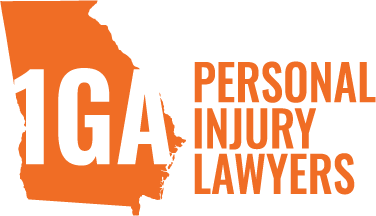Anyone can be injured on the job, even if they follow safety guidelines. While some on-the-job injuries are minor, others are much more serious. A workplace injury could even leave you with a permanent disability.
If you’ve suffered an injury on the job, you’re entitled to receive certain benefits through your employer’s workers’ compensation insurance. Insurance companies often fight valid claims or offer workers less than they’re entitled to. An Atlanta workers’ compensation lawyer will fight to ensure that you receive the maximum workers comp benefits.
Our legal team at 1Georgia Injury Lawyers has helped countless clients with workers’ compensation cases. Contact our Atlanta personal injury lawyers today at 678-635-9939 for a free consultation.
What Is Workers’ Compensation?
Workers’ compensation is a type of insurance that ensures employees who suffer work-related injuries receive both medical and wage benefits. In Georgia, any business with three or more employees is required to have workers’ compensation insurance.
Workers who suffer qualifying injuries are entitled to receive compensation for:
- Medical treatment, including hospital stays
- Physical therapy
- Prescriptions
- Travel expenses related to the injury
- Partial compensation for lost wages
Worker’s compensation is a no-fault system, meaning injured employees do not need to prove the employer was responsible for a workplace accident. The workers’ compensation claims process can be complex and difficult to navigate.
Every state has its own laws governing workers’ compensation. You must work with an experienced attorney who specializes in Georgia workers’ compensation laws. You’ll have a better outcome if you work with a knowledgeable attorney who will fight for your rights.
How Much Are Workers Compensation Benefits in Georgia?
Workers’ compensation is a crucial safety net for employees who suffer workplace accidents or work-related illnesses. Understanding the different types of benefits available is essential for injured workers seeking fair compensation.
Medical Benefits
Medical benefits cover all necessary and reasonable medical treatment related to the work injury. This includes doctor visits, hospital stays, surgeries, physical therapy, prescription medications, and any other medical expenses incurred. There is no maximum limit on the amount of medical benefits an injured worker can receive, ensuring continuous care as long as it is needed.
Temporary Total Disability Benefits
TTD benefits are provided to employees who are temporarily unable to work due to their injury. The temporary total disability rate is two-thirds of the worker’s average weekly wage, up to a maximum limit.
TTD benefits continue until the employee can return to work or reaches maximum medical improvement (MMI), but they are generally limited to 400 weeks from the date of injury.
Temporary Partial Disability Benefits
If an injured worker can return to work but at a reduced capacity or with lower earnings, they may be eligible for TPD benefits. These benefits are calculated as two-thirds of the difference between the pre-injury average weekly wage and the post-injury wage.
TPD benefits can be received for up to 350 weeks from the date of injury.
Permanent Partial Disability Benefits
PPD benefits are awarded when an injured worker has a permanent impairment but can still work in some capacity. The amount of PPD benefits is determined based on the specific body part affected, the degree of impairment, and the worker’s pre-injury average weekly earnings.
Georgia’s workers’ compensation law uses a schedule of injuries to calculate the duration and amount of benefits.
Permanent Total Disability (PTD) Benefits
PTD benefits are for workers who are permanently unable to work in any capacity due to their injury. These benefits provide two-thirds of the worker’s average weekly wage, up to the maximum weekly benefit, for as long as the disability continues.
Death Benefits
If a work-related injury or illness results in death, the worker’s dependents are entitled to death benefits. These benefits include compensation for funeral and burial expenses up to $7,500 and two-thirds of the deceased worker’s average weekly wage, up to the maximum weekly benefit, to be divided among the dependents.
Death benefits can continue for a surviving spouse until remarriage or for minor children until they reach 18 (or 22 if they are full-time students).
What Should I Do If I’m Hurt at Work in Atlanta, GA?
If you’re injured at work, you should inform your employer as soon as possible. Under Georgia law, your employer must be notified of your workplace accident within 30 days, but you’ll have a stronger case if you report your injury sooner than that. At most workplaces, your injury should be reported to your direct supervisor.
You should also seek medical attention as soon as possible. Not only is this a way for you to get treatment, but it’s also a chance for you to document your injury. Carefully follow all of the instructions your doctor gives you and make sure that you attend all scheduled appointments.
Keep copies of your medical records. Also, keep a record of both your injury and your symptoms. This record should be as detailed as possible. If your injury is visible, you should photograph it from different angles. You may also want to take additional photographs as your injury begins to heal. The more evidence you have to support your workers compensation case, the better.
While you’re resting and recuperating, you should also contact an Atlanta workers’ compensation attorney so that you can file a claim.
Why Should I Hire an Atlanta Workers’ Compensation Lawyer?
If you’ve suffered a minor injury that hasn’t caused you to miss work, and if your employer admits that the injury occurred on the job, you may not need assistance from an attorney. In most cases, however, having the guidance and support of an Atlanta workers’ compensation lawyer will make this difficult process easier for you.
It’s not unusual for insurance companies to deny valid workers’ compensation claims. If you have a pre-existing condition, the insurance company may try to use that against you so that they can avoid paying out benefits. With an experienced workers’ compensation attorney on your side, you’ll have recourse if your claim is wrongfully denied, and it’s far less likely that your claim will be denied in the first place.
Hiring an attorney will also help you to receive the maximum compensation. If your workers’ compensation benefits are calculated incorrectly, you may not receive enough money to cover your lost income and medical care. A lawyer can calculate your workers’ compensation benefit amount and make sure you get all of the money you’re entitled to.
It’s common for insurance companies to pressure injured workers to accept a settlement that’s far less than the value of your claim. When you have a workers’ compensation attorney, you can leave all paperwork and negotiations to them. While your lawyer works with the workers’ compensation insurance carrier, you can focus on your recovery.
Even though workers’ compensation insurance exists to protect workers, it isn’t always easy for injured workers to collect benefits. Denials, disputes, delays, and other problems can make it difficult for workers to resolve a claim. Working with an attorney will help you resolve things quickly and favorably.
Remember, your employer’s insurance company has lawyers working for them. You’ll want to have an experienced workers’ compensation lawyer on your side too. Contact our law firm today for a free consultation.
How Much Does It Cost to Hire a Workers’ Comp Attorney?
You may think you can’t afford to hire a lawyer after your workplace accident, especially if you’ve missed work. Thankfully, you won’t have to pay anything upfront to hire an attorney. Workers’ compensation attorneys work on contingency, which means they’ll agree to accept a percentage of the benefits that they collect for you.
Under Georgia law, the contingent fee arrangement must be specified in advance. Typically, a lawyer will take anywhere between 15% and 45% of the recovery. The contingency fee does not recover costs related to your case, such as money spent on expert witnesses.
Contingency fees are beneficial for both workers’ compensation attorneys and clients. The lawyer will be motivated to secure as much as possible for their client. If the attorney is unsuccessful, clients won’t pay any attorney fees.
Contingent arrangements also mean lawyers are unlikely to take on a workers’ compensation case unless they believe they have a high chance of success.
What Should I Do If My Workers Compensation Claim Is Denied?
If your workers’ compensation claim is denied, you’re entitled to receive an explanation for the denial. You also have the right to appeal the decision. With that said, your appeal is unlikely to be successful without the assistance of an attorney.
Your lawyer can appeal the denial with the State Board of Workers’ Compensation. Both your attorney and your employer’s insurer will be able to present evidence to an Administrative Law Judge. The judge will determine if you are entitled to benefits.
It’s best to hire an Atlanta workers’ compensation lawyer and appeal your denial as soon as possible. Georgia law states that an appeal must be filed within one year of the date of the accident or discovery of the illness or injury. Your attorney can complete the required WC-14 form and submit it to the State Board of Workers’ Compensation before the clock runs out.
What Responsibility Does the Employee Have in Filing a Workers’ Comp Claim?
While Georgia workers’ compensation law ensures employees have coverage for work injuries, employees must meet certain responsibilities to qualify for benefits. Here are your responsibilities if you’re hurt at work:
- Follow the employer’s written safety practices.
- Report the injury to the employer within 30 days.
- Submit to a drug test after a workplace accident if requested.
- If you don’t receive benefits, file a claim within one year of the injury.
- Accept medical care and comply with all reasonable treatments.
- Ensure that all information submitted when claiming benefits is fully accurate.
- Inform the employer of a change in address or change in name,
- Attempt any work approved by the physician providing treatment, even if it pays less than your usual job.
- Submit requests for travel expense reimbursement.
Failure to meet these responsibilities could cause your claim to be denied. By contacting an attorney early in the process, you can make sure to do everything that you need to do to obtain benefits.
What Responsibility Does the Employer Have in the Workers’ Compensation Process?
Georgia Workers Compensation Law states that all employers with three or more employees must carry workers’ compensation coverage. It’s the responsibility of the employer to swiftly provide medical and disability benefits to employees who were injured on the job.
After an employer has been notified of a work-related injury, they must complete and submit a WC-1 First Report of Injury within 10 days. If an injury has kept an employee from returning to work for seven days, the employer must also submit a WC-6 Wage Statement so that the employee’s wage benefits can be calculated accurately.
The employer must also make sure that the employee can receive medical care for their injuries. The employer should direct the employee to an approved healthcare provider. Georgia employers who fail to meet these responsibilities could face lawsuits.
Can I Be Fired for Claiming a Workers’ Comp Claim?
Many injured workers avoid reporting injuries or filing a claim because of concerns that it will lead to their termination. It’s important to know that your employer cannot fire you because you claimed workers’ compensation. Even though Georgia is an at-will employment state, retaliatory discharge is prohibited under federal law.
If your employer does fire you after you file a claim, you are still entitled to receive any benefits you are qualified for. You should contact a qualified workers’ compensation lawyer right away to make sure that your rights are fully protected.
Is There a Time Limit to File a Workers’ Comp Claim in Georgia?
To be eligible for benefits, you must report an injury within 30 days. The statute of limitations on workers’ compensation claims in Georgia is one year from the date of the injury or one year from the date the injury or illness was discovered.
Injured employees who fail to meet these deadlines may forfeit their right to compensation. While there are cases in which this timeline may be extended, it’s best to contact a lawyer and file your work injury claim right away. Acting quickly is the best way to protect your benefits and your rights.
Can I Sue My Employer?
Workers’ compensation insurance protects employees, but it protects employers as well. Workers typically cannot file personal injury claims against employers in Georgia, with rare exceptions.
While you won’t be able to sue your employer for your workplace injury, it may be possible for you to sue a third party. When you consult with our attorneys, they’ll be able to assess your case and tell you if you have grounds to sue.
Can an Independent Contractor File a Workers’ Comp Claim?
Workers’ compensation only covers employees, which means that independent contractors are not eligible for benefits in most cases. An exception to this is if an independent contractor is misclassified and is actually an employee under Georgia law.
Georgia’s laws governing independent contractors are complicated. The Georgia Court of Appeals’ decision in Golash v. Cherokee Cab Co. found that a worker qualifies as an employee if the employer has the right to control and direct their work. Even if you are an independent contractor, it’s worthwhile to consult with our Atlanta workers’ compensation attorneys to see if you could be entitled to benefits.
What Is My Workers’ Compensation Claim Worth?
The total value of your workers’ compensation claim will vary based on many different factors, including the severity of your injury and the wages you were earning before your injury.
Income Benefits
If your injury keeps you out of work for more than seven days, you will be eligible to receive benefits for two-thirds of your average wages.
If you can return to work, but you are earning less than you previously did because of your injury, you can receive benefits that help to cover the difference. You are entitled to receive two-thirds of the difference between your previous wages and your current wages.
Medical Bills
All medical expenses will be covered, but you must choose a medical professional from a list of providers authorized by your employer.
Travel Expenses
If you have to travel to receive treatment for your injuries, you are entitled to be reimbursed for any expenses. You must submit these expenses to your employer to receive compensation.
Permanent Disability
If you are permanently disabled because of your injury, you may be entitled to receive additional benefits. Georgia law requires treating physicians to use American Medical Association Guidelines to assign a patient a permanent partial disability rating to specific parts of the body. That rating will be used to calculate the total benefits that are owed.
In some cases, you may want to seek a settlement from the employer’s insurance company to ensure that your future needs are met. Your lawyer will be able to advise you on the best course of action in your Atlanta workers’ compensation case.
Workers’ Compensation Lawyer FAQ for Atlanta, GA
What is Workers’ Compensation?
Workers’ compensation provides medical benefits and wage replacement for employees injured on the job. It’s designed to cover medical expenses, lost wages, and rehabilitation costs, regardless of fault.
Who is required to carry workers’ compensation insurance in Georgia?
Georgia law mandates that businesses with three or more employees must carry workers’ compensation insurance.
What benefits are available under Georgia’s workers’ compensation?
Benefits include:
- Medical treatment from approved providers
- Temporary disability payments (up to $675 per week)
- Vocational rehabilitation
- Death benefits for surviving families
How long do I have to file a workers’ compensation claim in Georgia?
You must notify your employer within 30 days of the injury and file your claim within one year from the date of injury or your last medical treatment.
What if my workers’ compensation claim is denied?
If denied, you can file an appeal with the State Board of Workers’ Compensation. A lawyer can help gather evidence, file appeals, and represent you during hearings.
Can I use my own doctor for treatment?
No, you must choose a physician from the employer’s panel of approved doctors. If unsatisfied, you may request a change.
How can a workers’ compensation lawyer in Atlanta help?
A local lawyer ensures that your claim is filed correctly, negotiates with insurers, appeals denied claims, and helps you maximize your benefits. Contacting an experienced Atlanta workers’ compensation attorney can improve the outcome of your case.
Contact Our Atlanta Workers’ Compensation Lawyers Today
Workplace accidents can have serious consequences, including expensive medical bills and lost income. The workers’ compensation system can be complicated and confusing. The insurance company may try to deny or underpay your claim. That’s why you need a skilled Atlanta workers’ compensation lawyer on your side.
Our attorneys at 1Georgia Injury Lawyers have handled countless workers’ compensation cases.
Call us today at 678-635-9939 for a free case assessment.






